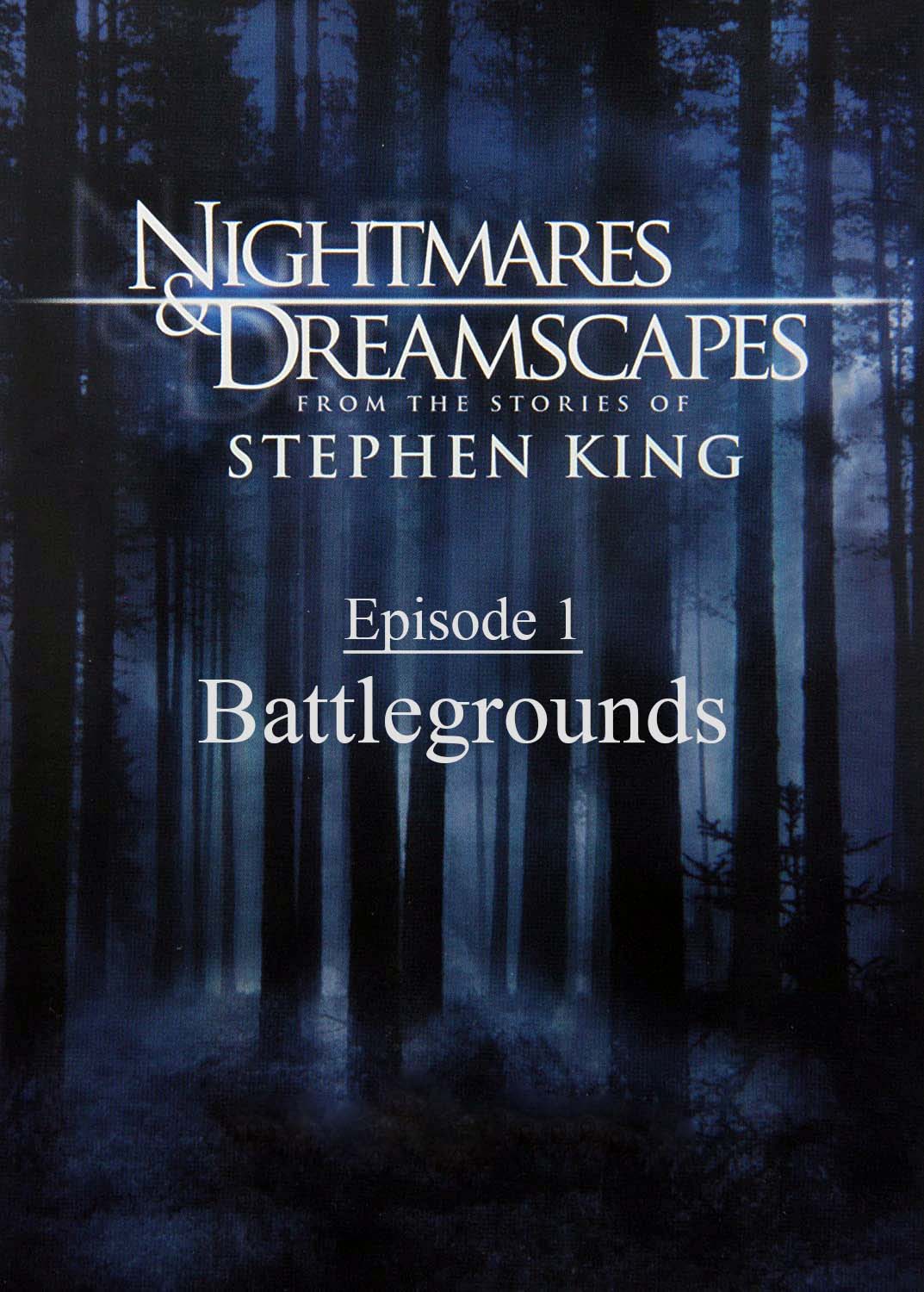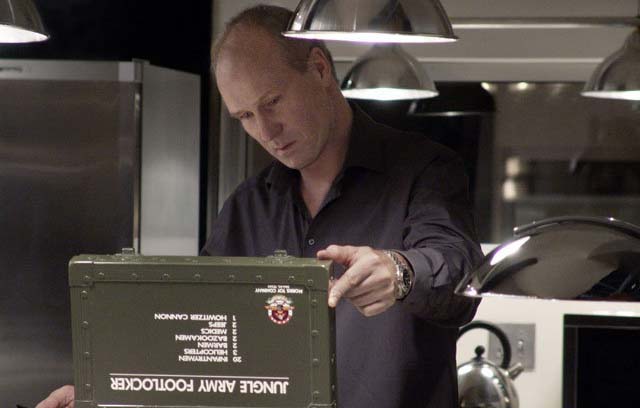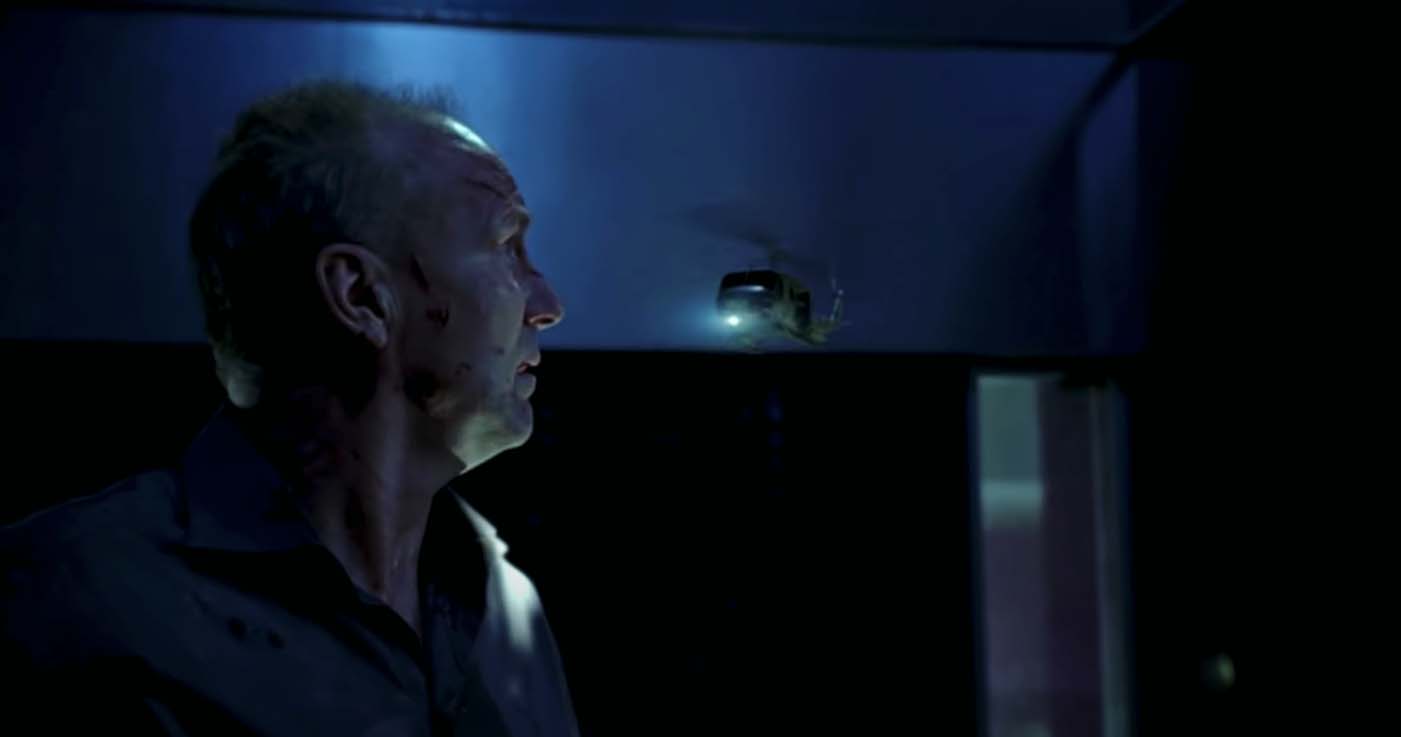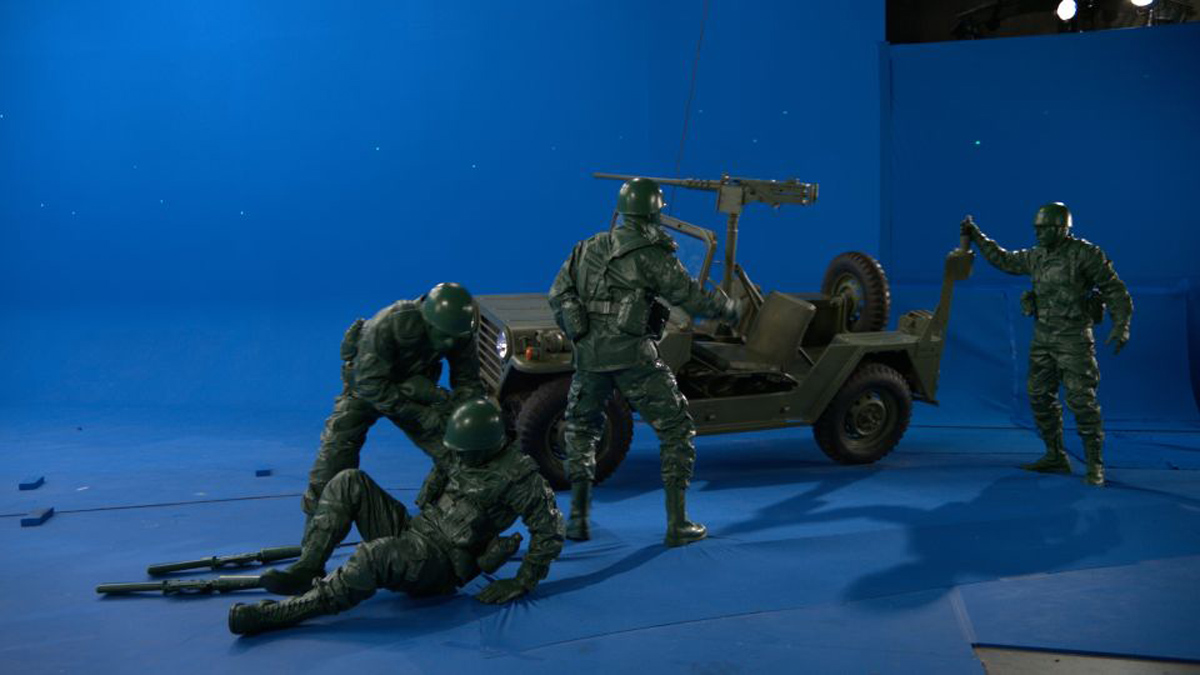Starring: William Hurt
Written by: Richard Christian Matheson
Based on the Short Story “Battleground” by: Stephen King
Directed by: Brian Henson
Rated: NR
Running Time: 55mins
WINNER – Prime Time Emmy: Outstanding Music Composition for a Miniseries, Movie or a Special – Original Dramatic Score – (Jeff Beal) & Outstanding Special Visual Effects for a Miniseries, Movie or a Special (Sam Nicholson (visual effects supervisor), Eric Grenaudier (visual effects supervisor), Mark Spatny (visual effects producer), Adalberto Al Lopez (cgi supervisor), Michael Cook (lead cgi model maker), Daniel Kumiega (lead cgi animator), Megan Omi (lead visual effects compositor), Ryan Wieber (lead visual effects compositor) & Marc van Buuren (visual effects producer))
“The big question for production was ‘how do we bring convincing 3 inch tall toy soldiers to life?’ The first thought that comes to mind is computer animation, but Brian wanted to see if doing it with practical effects would work. My first initial make-up test for him prompted a full green army man test, so together with costume designer Karen Mason we completed a whole suit and shot a film test. After that test there was no question in anyone’s mind that good old practical “man in a suit” effects were the way to go.” – Character Artist: Lee Romaire
“The big challenge was length… …Adapting the story into a script was otherwise pretty easy thanks to King’s progression. It had a strong flow and my script fell together fast. About halfway through writing, I began to think that if I were to completely eliminate dialogue, it would still make sense and be unique. I used some screenwriter tricks to cover exposition and went for it not knowing what the network would say. They immediately got how effective and different it was and were fully behind it. They spent a ton on that episode and it shows. Our director Brian Henson and star William Hurt totally nailed it.” – Writer: Richard Christian Matheson

For this recommendation, I’ve chosen to do something very different. BATTLEGROUND is neither a theatrical feature nor a made-for-TV movie. It isn’t even a TV show. Instead, it’s a single episode from a TV anthology series called NIGHTMARES & DREAMSCAPES: FROM THE STORIES OF STEPHEN KING. I chose it because I feel that it’s one of the best Stephen King adaptations ever produced and deserves to be in any conversation that includes classics like Rob Reiner’s MISERY, George A. Romero’s CREEPSHOW and Brian DePalma’s CARRIE. It’s a carefully constructed adaptation that feels more like a mini-movie than an episode of a tv series and the creative people in charge of putting it all together truly seemed to understand the tone that King himself was going for in his original narrative.
BATTLEGROUND stars Oscar-winning actor William Hurt (KISS OF A SPIDER WOMAN and A HISTORY OF VIOLENCE) as hitman Jason Renshaw (John Renshaw in the book). He is an assassin who, at the start of the episode, has been hired to kill Hans Morris, the CEO of the Morris Toy Company. Upon completing the job, Renshaw returns home just before receiving a package from someone that we can only assume is Hans Morris’ mother. Inside the package is an authentic-looking army footlocker filled with a complete collection of miniature toy soldiers, toy jeeps and toy helicopters, as well as what a sticker on the outside of the container calls “bonus surprises.” Well, this being from the mind of Stephen King, someone who tells stories that are a little twisted at times, let’s just say that the toy soldiers come to life and proceed to carry out a plan of revenge on Renshaw.

The short story was first published in a 1972 issue of Cavalier magazine before making its way into the pages of King’s first and probably best collection of short stories, “Night Shift.” As a big fan of King’s writing, BATTLEGROUND was always one of my favorite short stories, but at only ten pages, I never imagined it could be made into a 55-minute TV episode. Fortunately, writer Richard Christian Matheson saw things differently. His script takes King’s short story and effectively lengthens it by creating scenarios that add to the narrative in exciting ways while maintaining an understanding of King’s original concept. We get to see Renshaw’s cold-blooded assassination of the toy company mogul, which is only alluded to in the original story and is used here to add to the viewer’s understanding of who Renshaw is right from the start. Then, there is also the addition of a toy commando, which feels like a nod to Sylvester Stallone’s Rambo and adds some real entertainment value to the end of the episode.
Simply put, BATTLEGROUND is a fun 55 minutes of television. Honestly, that’s all it is. If anything is going on thematically, it went right over my head. To me, it was all about watching an actor of William Hurt’s caliber going up against three-inch-tall toy soldiers and letting the roller-coaster ride of an episode give its viewers almost an hour of pure entertainment. The episode offers very little new in the concept of story. As a matter of fact, the story feels like a combination of the third segment in the 1975 anthology film TRILOGY OF TERROR, titled AMELIA, where a wooden doll who comes to life tries to kill a woman played by Karen Black in her apartment and THE INVADERS episode of the original TWILIGHT ZONE series where a woman played by Agnes Moorehead is attacked by what seems to be alien invaders in her secluded farmhouse (It’s also worth mentioning that the teleplay for BATTLEGROUND was written by the son of legendary writer Richard Matheson who coincidentally wrote both of the aforementioned stories). Matheson and director Brian Henson (THE MUPPET CHRISTMAS CAROL) seem to understand and embrace the similarities that the stories have, as they have included some fun nods to the earlier tales throughout BATTLEGROUND, including a couple of shots of the exact wooden doll from TRILOGY OF TERROR which sits amongst Jason Renshaw’s things in his apartment.

Matheson and Henson took a risk by choosing to tell the story with absolutely no dialogue, a choice that could have very easily gone wrong. During the first thirteen minutes of the episode, this decision effectively adds to the viewer’s understanding of the Renshaw character as it presents us with the outside world as he chooses to experience it. He is a loner and when he ventures outside, he doesn’t talk to anyone. Renshaw actually shuts everything out with a pair of earbuds which he doesn’t remove until he is safely home alone in his apartment. The muffled audio that the audience hears as he walks through an airport or sits on a busy plane mirrors the muffled sounds that Renshaw hears as the earbuds soften the noise around him. Then, as Renshaw is dealing with the toy soldiers, he never vocalizes what he is thinking as he tries to figure out the situation, strengthening the development of the character and making him much more interesting. He isn’t the kind of person who would suddenly start talking to himself or even the toy soldiers. This would only come off as unnecessary and silly while working against and weakening the character’s believability.
Of course, it helps that William Hurt is perfectly cast as the lead. Renshaw is a man who’s always in control of any situation, that is until the day the little green army men are delivered to his doorstep. Running through a gamut of emotions, from the cold and calculated attitude that Renshaw showcases as he kills Morris to the confusion and frustration that begins to settle in as this unbelievable situation starts to get the better of him, Hurt’s effective use of facial expressions and body language, with only a few added grunts and painful screams, are all he needs to portray the character effectively. The viewer is always aware of what Renshaw is thinking and feeling, as Hurt, being one of the best character actors to ever step in front of a camera, embraces the decision to use no dialogue.
Let us not forget about the fx used to create the little green army men themselves. If the viewer doesn’t believe that these three-inch tall toy soldiers are real, then the episode won’t work and Henson obviously knew this. When it came to creating the toy soldiers, he opted to use real actors with plastic-looking outfits and expressionless masks instead of computer animation. The actors were shot against a blue screen background with full-scale jeeps, which were painted green and made to look like toys. The most complicated effect seems to be the act of shrinking these characters and vehicles down in size and placing them into the world inhabited by Renshaw. The use of real-life actors genuinely adds a true sense of realism to the miniature soldiers as we watch them run around, react to Renshaw, silently communicate with one another, fire their weapons and ride around in their vehicles. The result is both impressive and effective.

BATTLEGROUND is definitely the underexposed treasure in the Stephen King adaptation library. Buried within a TNT anthology series that itself has gone mostly forgotten, this gem needs to be uncovered and rediscovered. Brian Henson, Richard Christian Matheson, William Hurt and the rest of the talent involved created something that captures the feel of the original short story and effectively works as pure entertainment. So, the next time you’re deciding what Stephen King adaptation to watch, remember that there’s a gem out there that you may not have seen but is just as good as, and maybe even better than, a lot of the other options you are considering, and it’s called BATTLEGROUND.
Watch BATTLEGROUND
You May Also Like
